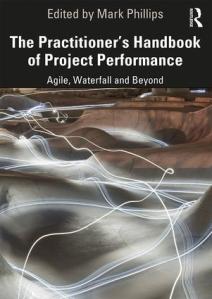Top 10 Observations from EVM Europe 2012
I attended EVM Europe 2012 conference last week at the University of Twente, The Netherlands. The event offered a window into different ways that EVM is implemented and applied.
It resoundingly reinforced the value of EVM and EVM tools as performance management and performance control techniques, even in organizations where it is not required. The conference helped me gain greater awareness of the life that EVM has on its own, outside of the United States defense sector. It broadened my view on how people outside of the U.S. perceive and apply EVM information that is discussed in the professional literature (such as the Measurable News) as well as when that information is codified in U.S. Government Guidelines, the ANSI standard, the EVM Practice Standard and the PMBOK Guide. This broadened view should be helpful as I work on my book about Communication Measurement.
Here are my top 10 observations from the event. The sample size may have been small (there were around 37 people there) but the energy, qualification and dedication of the attendees made it a force to be reckoned with.
- EVM is thriving in Europe. It goes by different names, such as integrated performance management, integrated project control, progress reporting, etc. But demand for insight into project performance and for project control is growing. The concept of integrating schedule, budget and scope, at a minimum, into a project control and management system, is a leading method for delivering that insight and control.
- EVM is used on some of the largest and most visible projects in Europe including CERN and large infrastructure projects.
- The push for EVM and performance management is being led by senior, seasoned, intelligent professionals that are on the cutting edge of their organizations.
- There are many, new, practice-based questions coming from practitioners using EVM in new ways. The focus is on developing an accurate picture of project performance and an effective set of project management controls to meet stakeholder needs.
- Practitioners are devouring the latest advances in performance management research. They are hungry to learn, test and implement best practices or try new ideas to see how it can improve project performance and control.
- There is an active interchange between practitioners and researchers. Practitioners are customizing methods and tools. Researchers are developing new methods and tools. Active discussion is taking place, driven by the practical challenges of stakeholder needs, project realities and dedication to pushing the boundaries of what EVM can do.
- New areas of research include when to re-baseline; earned schedule’s applicability to different types of activity networks; expanding the variables included in an integrated performance measurement system (to include items such as risk, quality, communication, complexity and social needs, for example) and; the P-Factor’s role in calculating EAC.
- People are looking to the U.S. for EVM expertise. The U.S. has a reputation of being the most experienced source for EVM/integrated performance management expertise.
- Codified concepts of project management, integrated project control and EVM are a starting point for these practitioners and researchers. Practitioners are taking what is valuable to them, applying it, seeing how it goes and modifying as needed.
- Practitioners seem to have close, direct contact with the project stakeholders or those interfacing with the stakeholders (in public works projects). They are sensitive to the non-deliverable based expectations for the project i.e. stakeholder requirements outside of the direct project result (such as political expectations, social expectations, an organization’s need to predict cash flow or the drive to foster innovation).
The conference was a great success and a pleasure to attend. There was a high level of discourse and personal engagement. There is something special when a conference works, and this one did. Thank you to the organizers. I look forward to EVM Europe 2013.




Great feedback on EVM Europe 2012. Thanks!